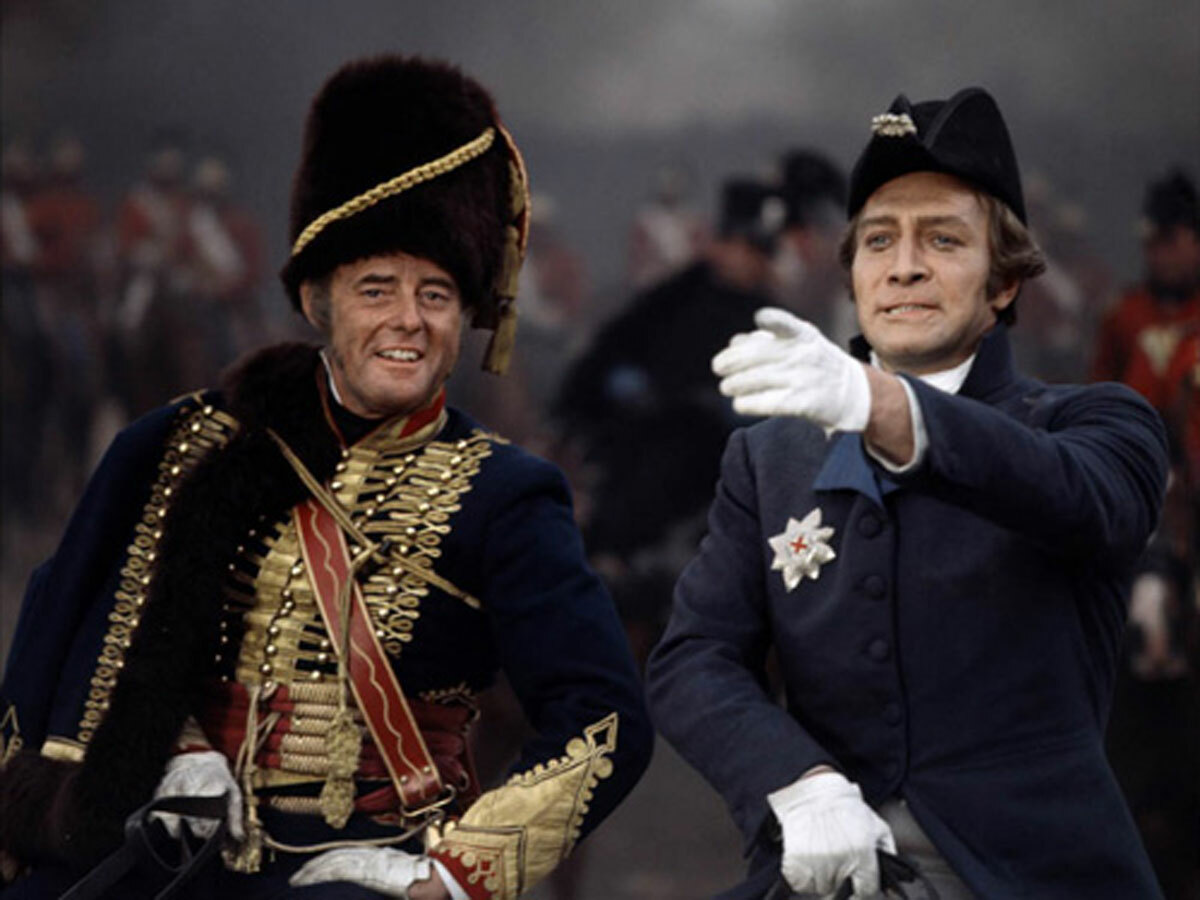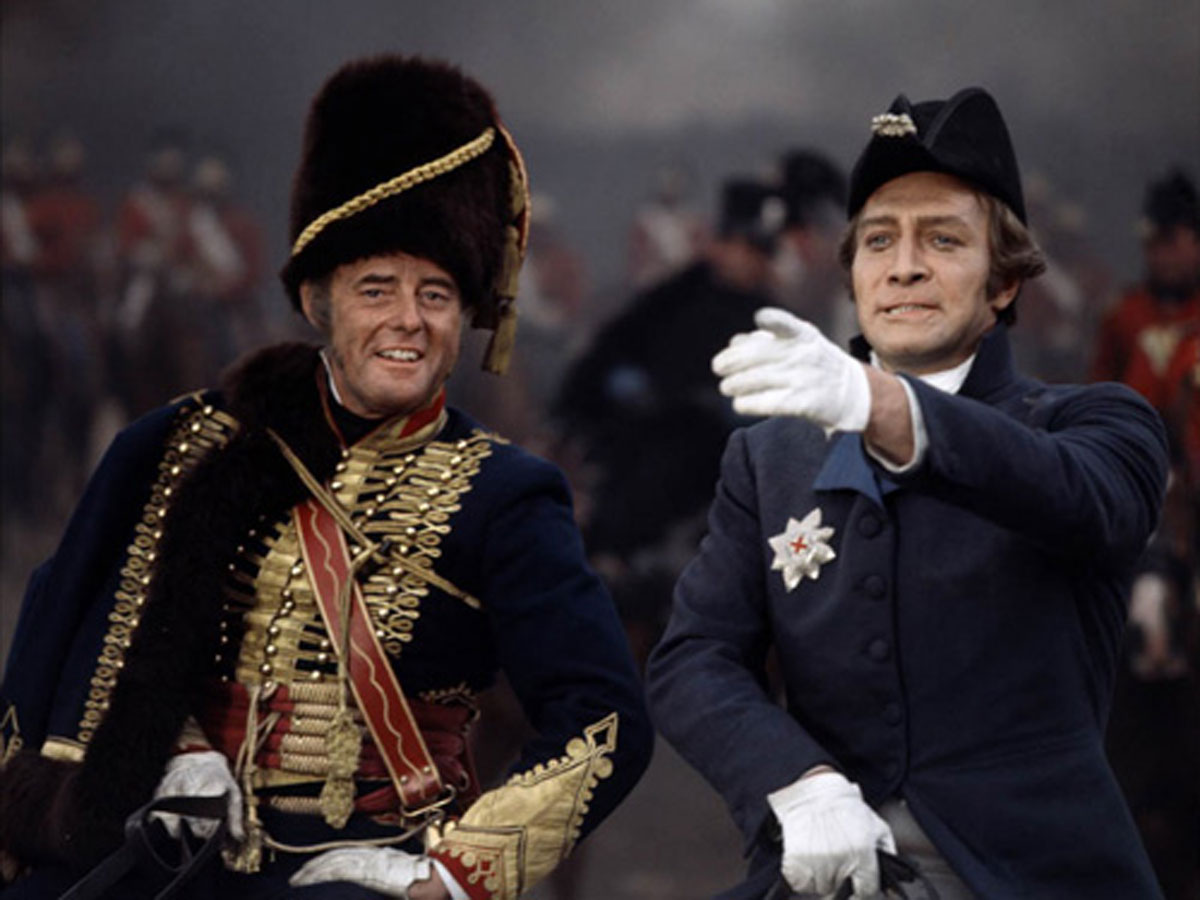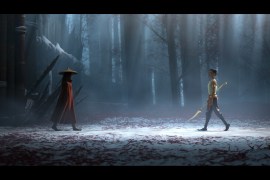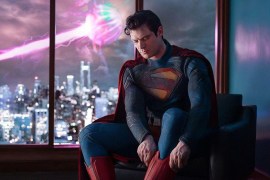25 best war movies
"War is hell," said General Sherman. War movies, on the other hand, are great. Here are the best of the lot
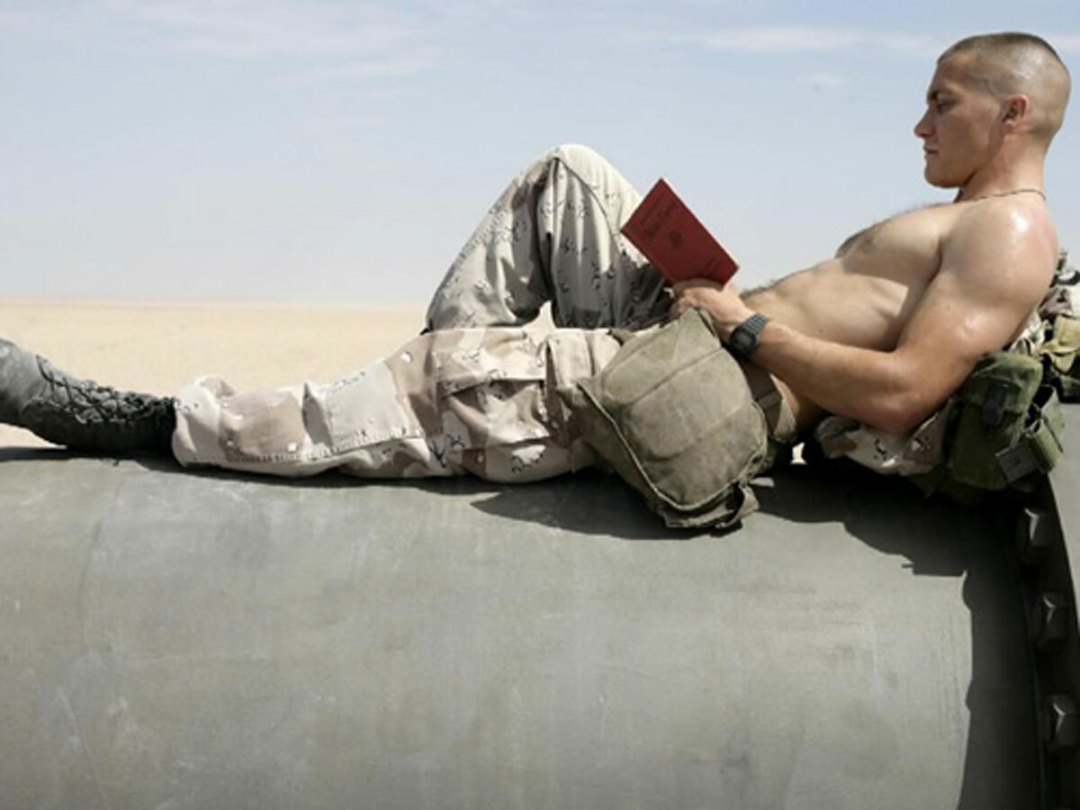
Time has proved war makes a brilliant subject for films — here are 25 battle scar-ridden examples for your attention.
Full Metal Jacket (1987)
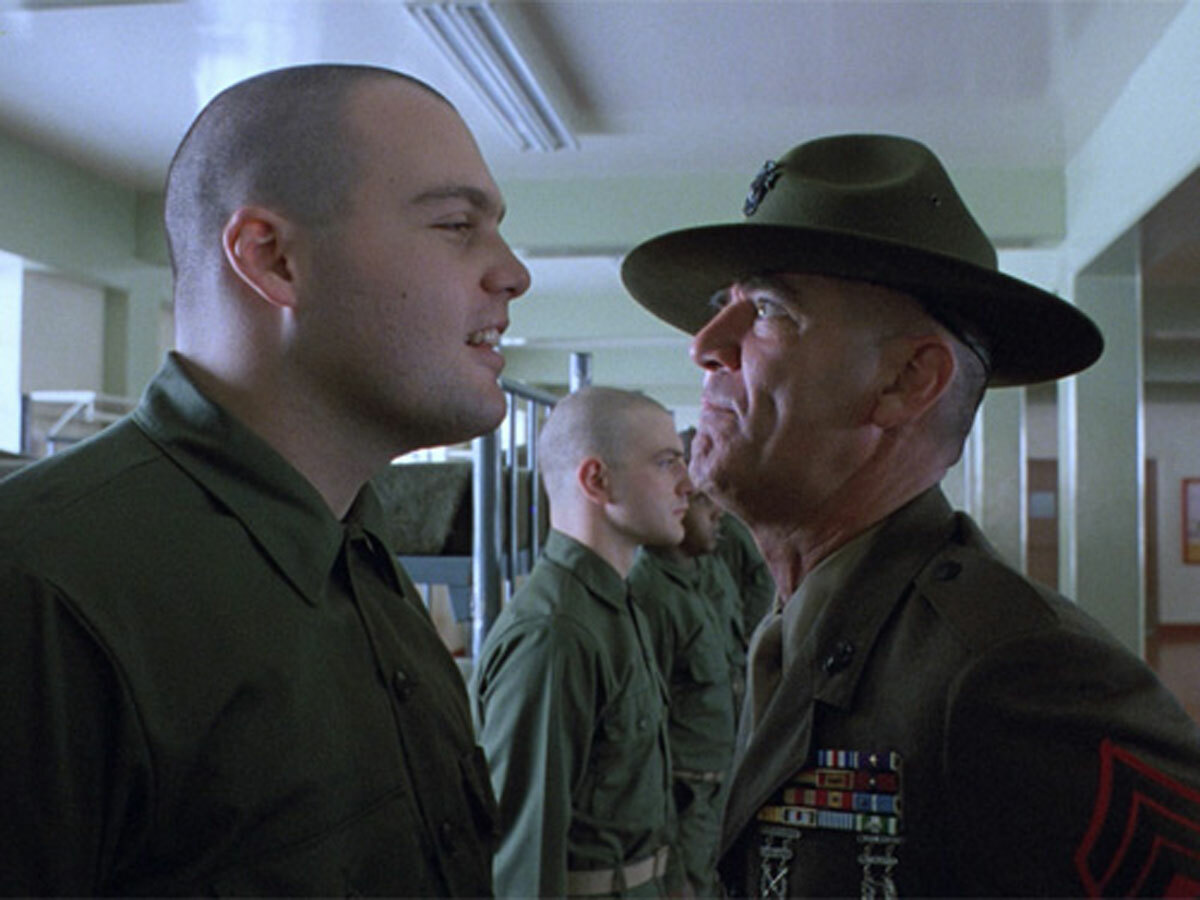
Notorious for Gunnery Sergeant Hartman’s unrelenting beasting of Private Pyle, Stanley Kubrick’s epic follows a bunch of green recruits through training and onto the Vietnam battlefield. The whole thing was shot in England, though you’d never know it.
Platoon (1986)
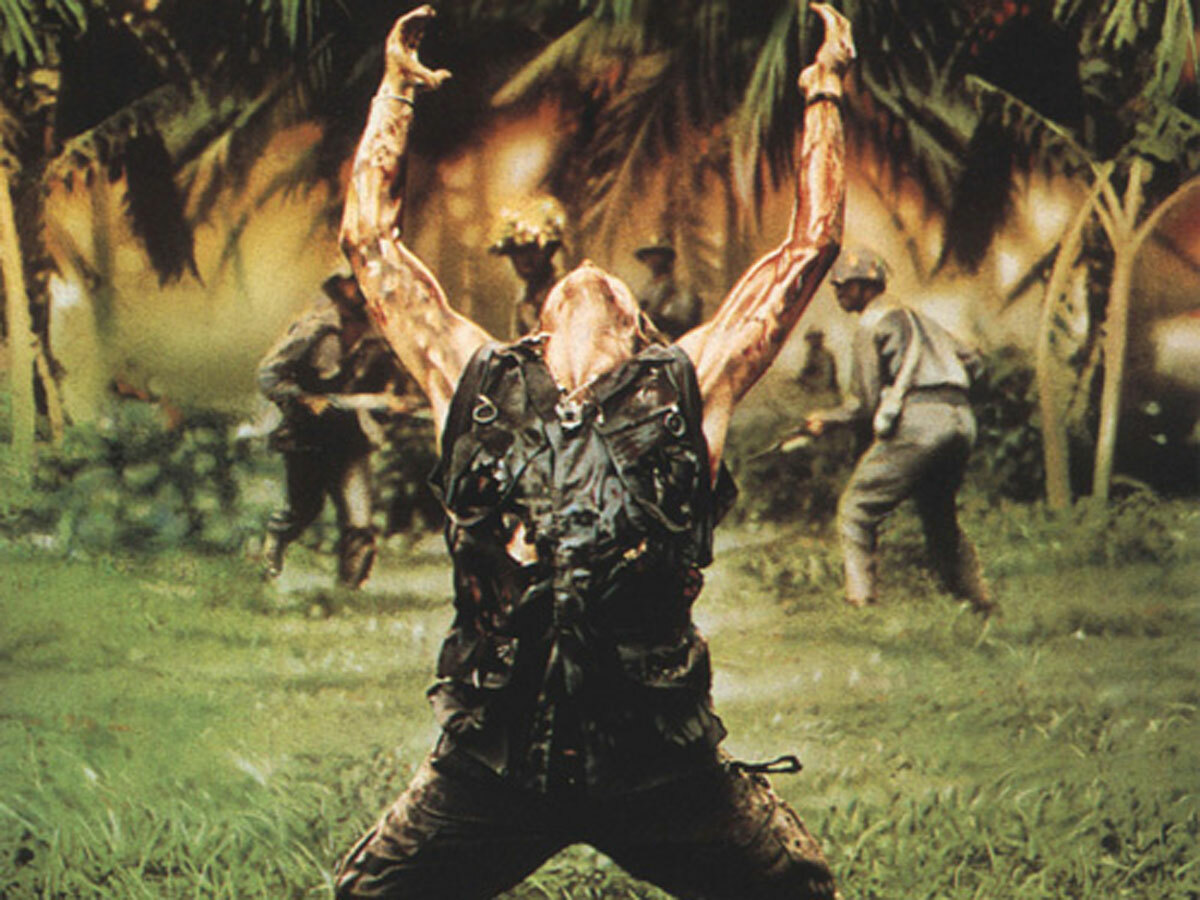
Though Charlie Sheen’s character in Platoon starts out optimistic and full of ideals, he soon ends up as cynical as his Two and a Half Men alter-ego. Claustrophobic jungle fighting and a level of violence that shocked 80s audiences are the backdrop to a plot that has you wondering who the real enemy is.
Apocalypse Now (1979)
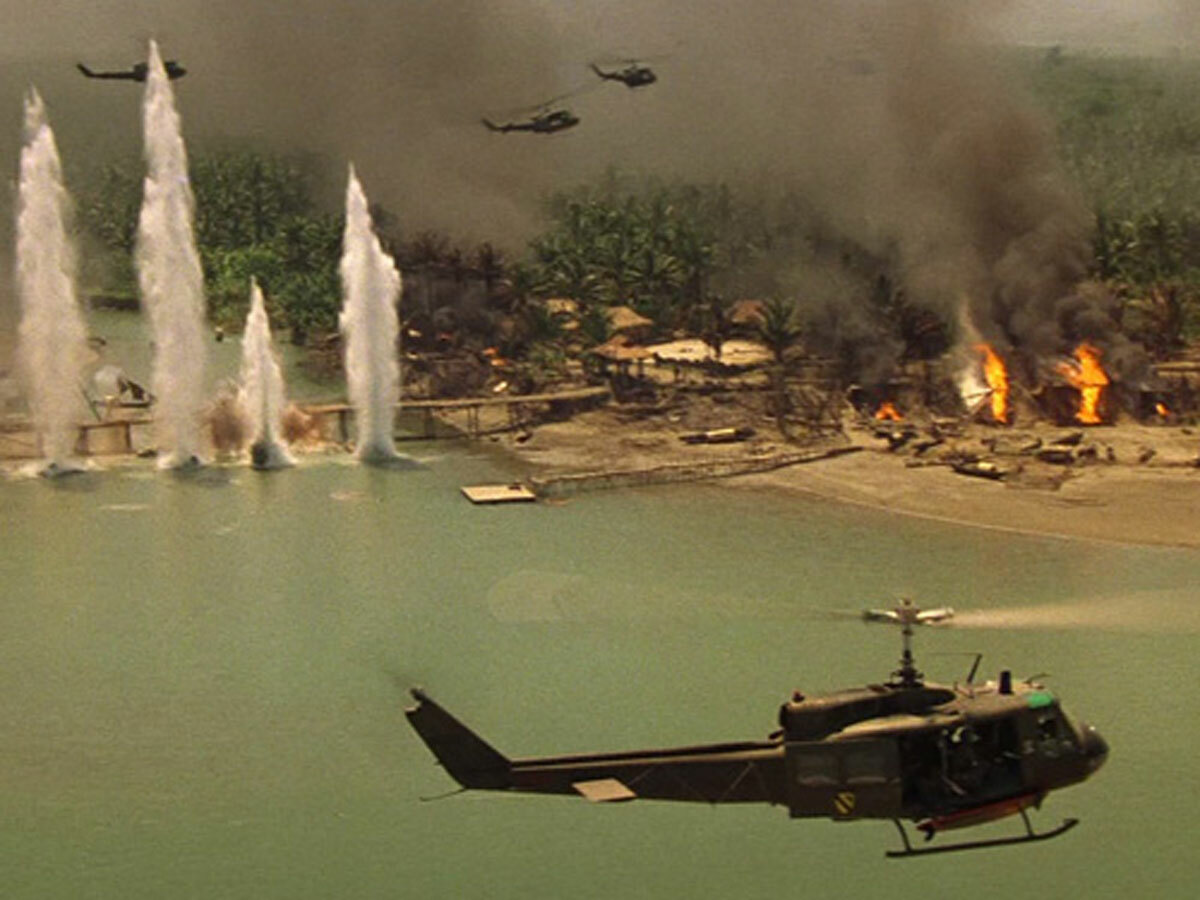
A long story of war and madness meandering down a river full of dangers. Martin Sheen comes across all sorts of surreal and harrowing scenes in his mission to kill Colonel Kurtz (Marlon Brando) whose mind hasn’t survived the rigours of Vietnam warfare.
Starship Troopers (1997)
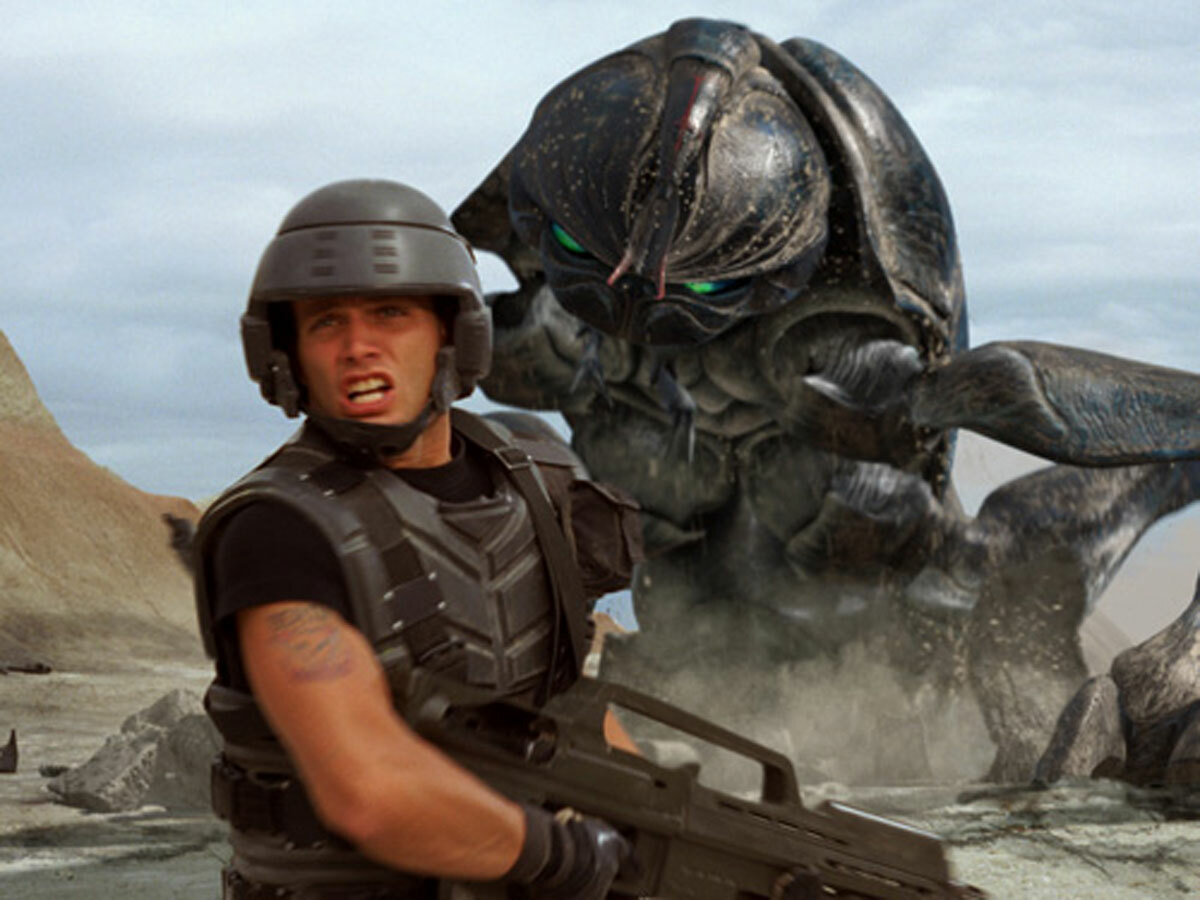
Paul Verhoeven’s future war satire follows, in extended newsflash form, the fortunes of a bunch of new recruits straight out of high school who are packed off to exterminate the hordes of giant killer space bugs threatening humanity.
A scathing attack on militarism and fascism from the Dutch director – who lived through the German occupation of the Netherlands in World War II.
Saving Private Ryan (1998)
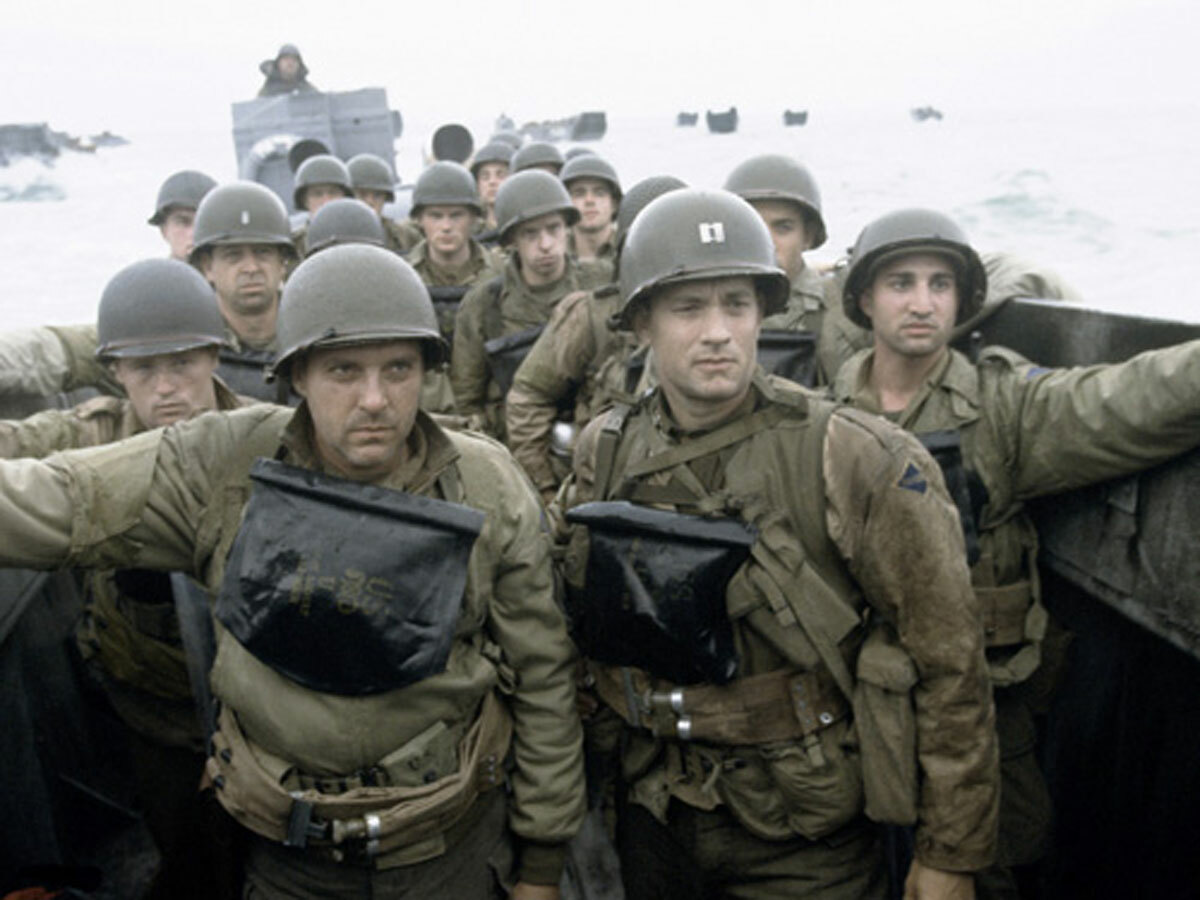
Worth watching for the intensely terrifying opening scene of the Normandy landings alone. Ex school teacher Captain John Miller (Tom Hanks) sets off across France to find Private Ryan – whose three brothers were killed during D-Day – and y’know, save him.
Spielberg deliberately aped the look of vintage newsreels during the 20-minute opening sequence, fiddling with the shutter timing on the cameras and treating the film to desaturate the colours.
The Thin Red Line (1998)
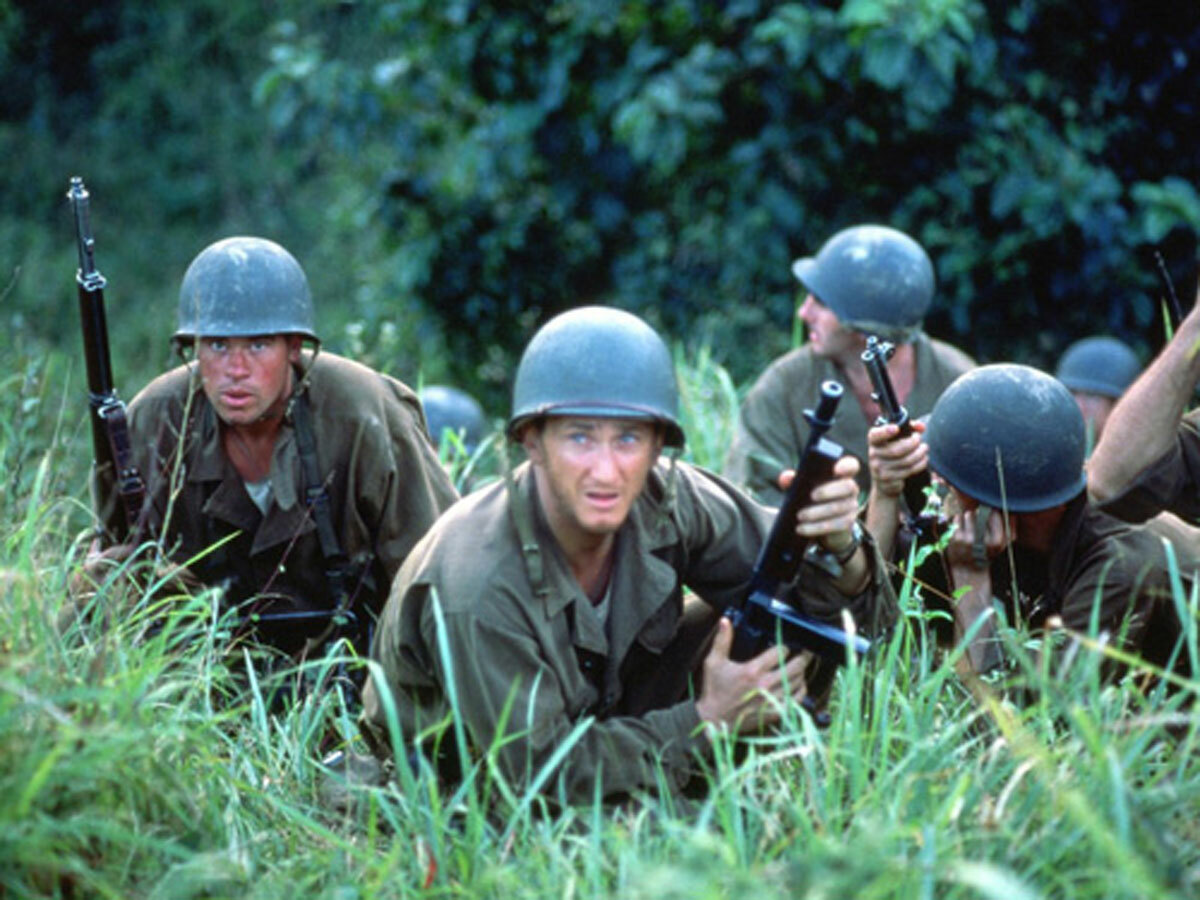
Military deserter Private Witt (James Caviezel) is dragged out of his peaceful life with Pacific natives and back into war. He and his compatriots are then thrown into the battle to take back the island of Guadalcanal.
Somewhat unfairly overshadowed by Spielberg’s Saving Private Ryan, The Thin Red Line saw the return of legendary director Terence Malik to film-making after two decades of self-imposed isolation. Malick’s approach to the Second World War emphasised the use of documentary wildlife footage, emphasising how the horrors of war impacted on the unsullied landscape of Guadalcanal.
The Longest Day (1962)
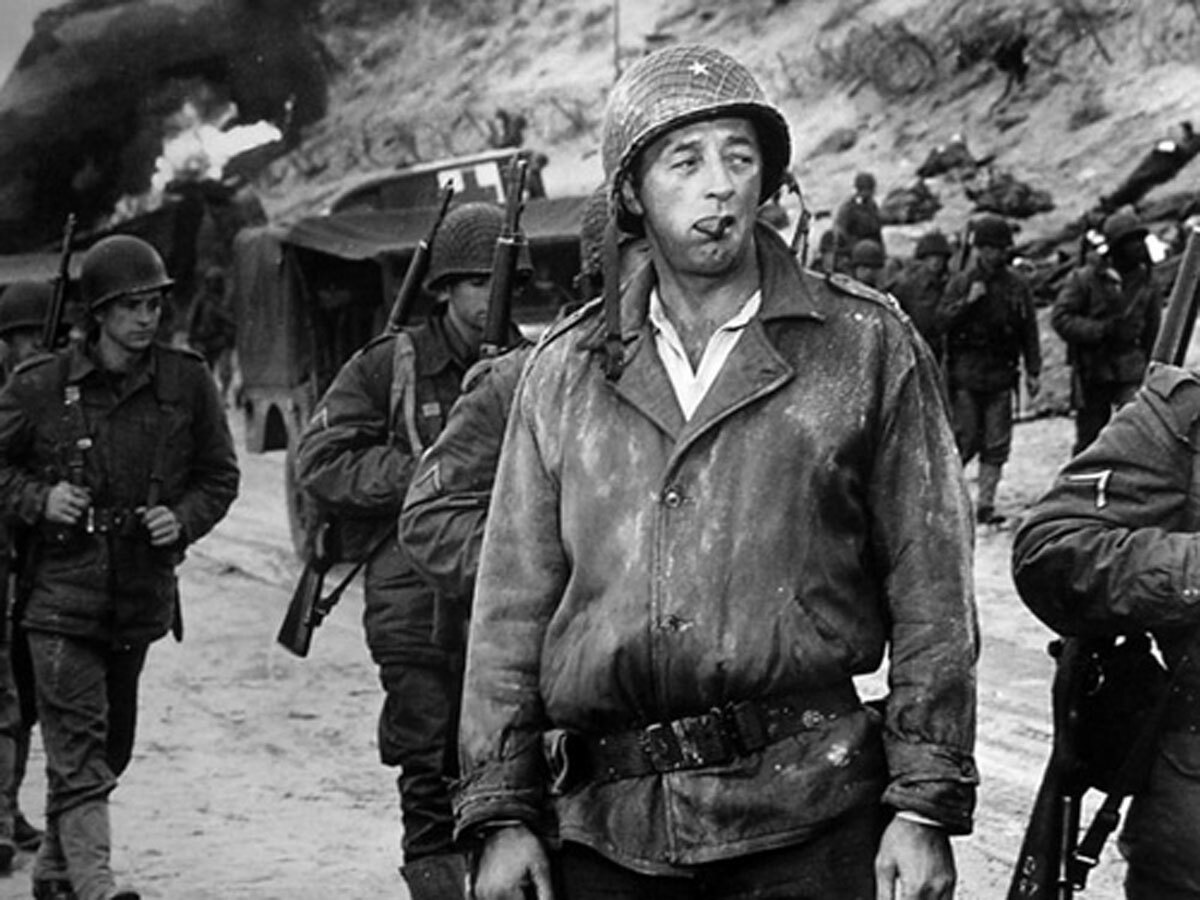
Producer Darryl F Zanuck saw the aftermath of D-Day as part of a news camera crew, so it’s not surprising that his depiction of Operation Overlord was painstakingly accurate. The last blockbuster epic shot in black and white, With three directors and an all-star cast including John Wayne, Richard Burton, Robert Mitchum and Henry Fonda (plus a pre-Bond Sean Connery) tramping around the original locations, The Longest Day was an undertaking on the same scale as the real D-Day landings.
A Bridge Too Far (1977)
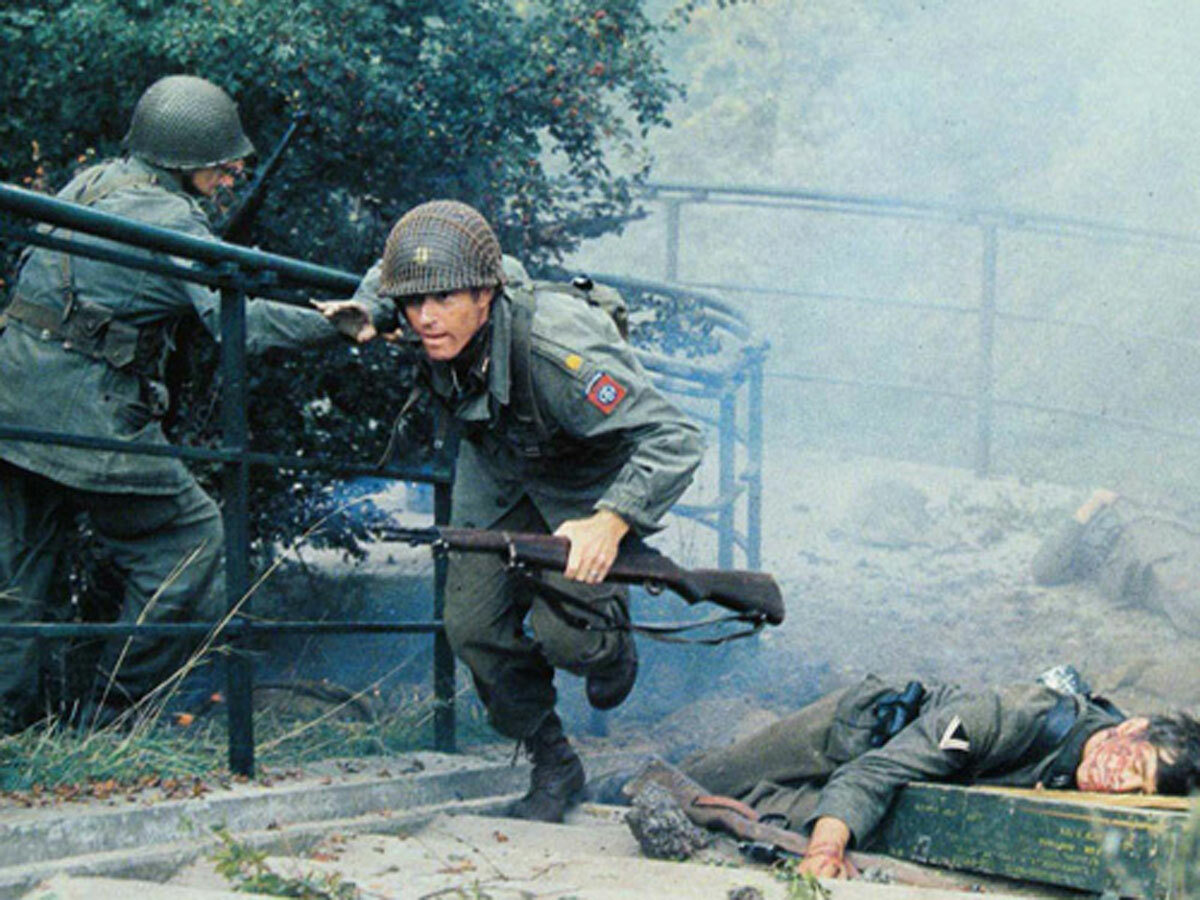
The cast, packed with Hollywood A-listers from Laurence Olivier to Sean Connery, takes on the roles of the soldiers of Operation Market Garden in an attempt to seize back bridges in Nazi-occupied Netherlands. As in Jurassic Park, director Richard Attenborough spared no expense.
Jarhead (2005)
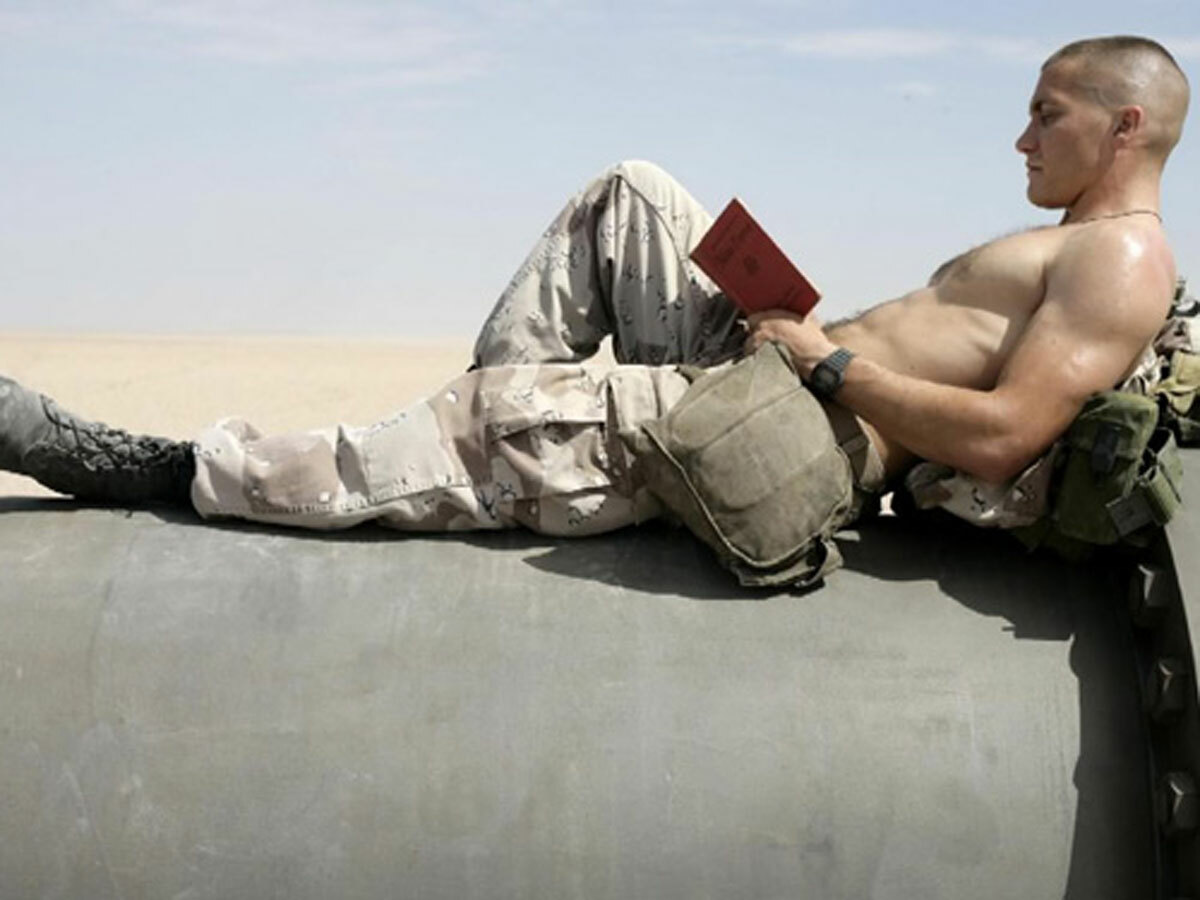
Jake Gylenhall experiences the futility and, most notably, the sheer boredom of the Gulf War conflict as he goes through training, ending up as a sniper with no-one to snipe at. Where most war films focus on the brief bursts of intense action that punctuate conflicts, Jarhead draws on the long drawn-out stretches of boredom in between.
The Dam Busters (1955)
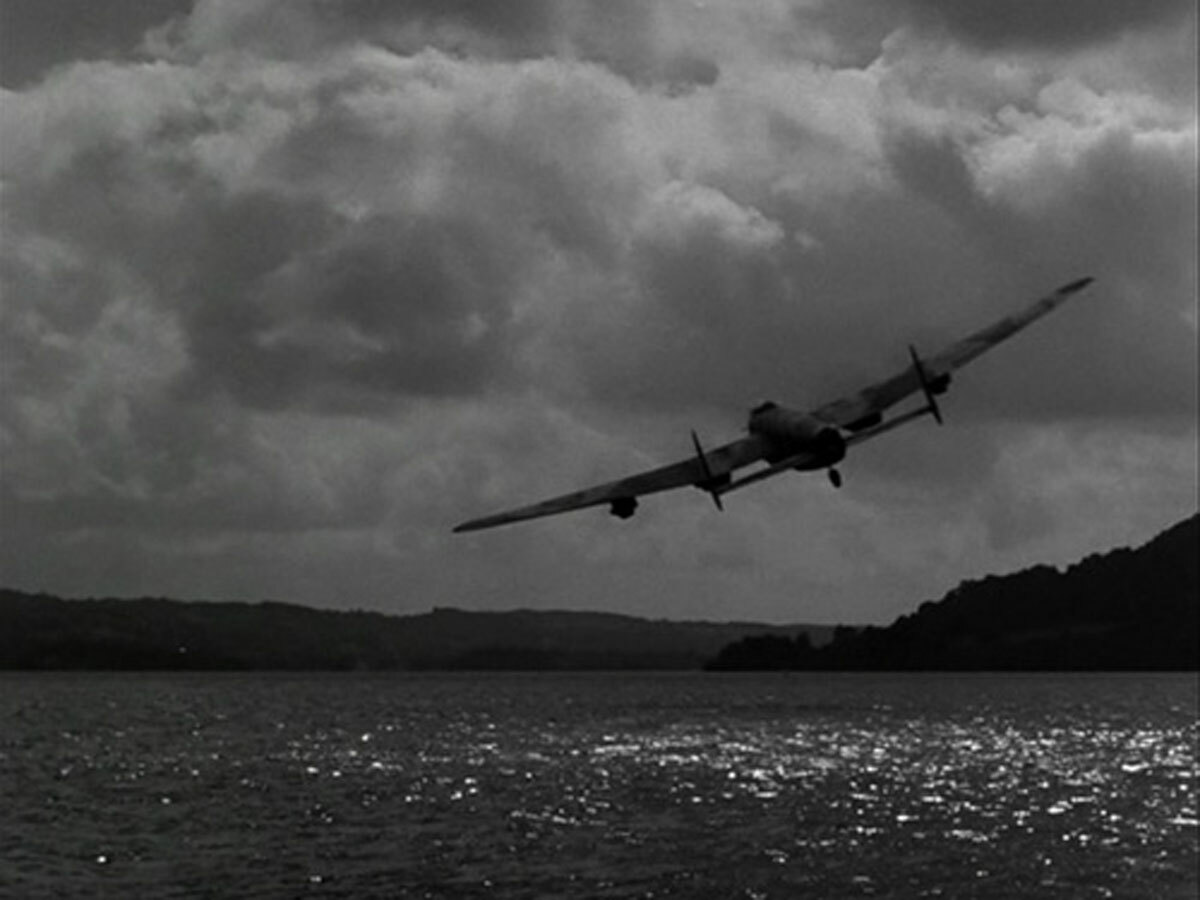
As the title suggests, this bunch of dashing pilot types risk life and limb to bust dams. Germany’s dams, to be precise. Based upon a real operation in WW2 that used the infamous bouncing bomb for the first time.
George Lucas famously used footage from the film for an early rough cut of the climactic Death Star battle in Star Wars – with many lines of dialogue in the final film sounding suspiciously familiar.
And Lord of the Rings director Peter Jackson is currently beavering away on a remake of the film, scripted by Stephen Fry.
The Big Red One (1980)
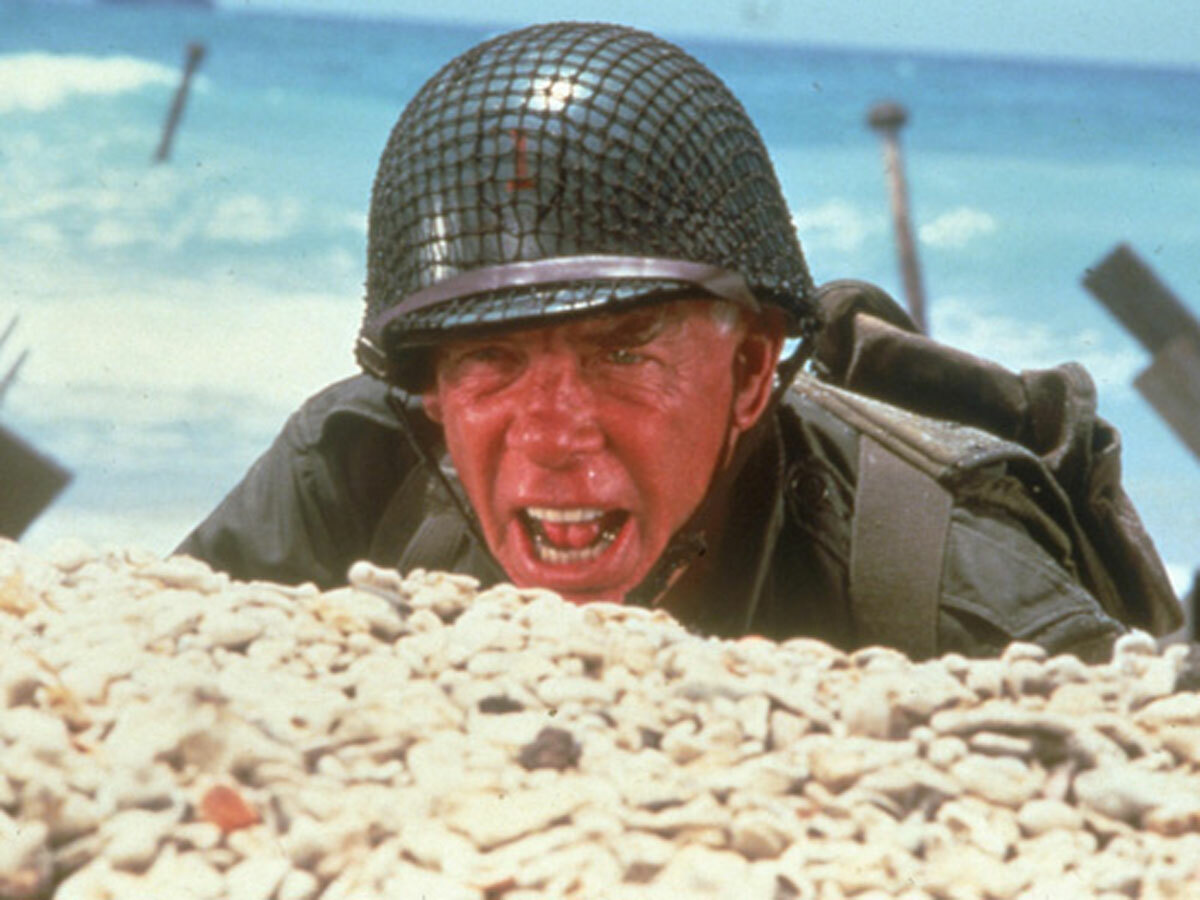
Reporter Sam Fuller signed up to fight in the Second World War partly to witness “the biggest crime story of the century,” and 30-odd years later, he put that story up on the cinema screen, directing this tale of a grizzled Sarge (Lee Marvin) guiding his men through the conflict.
Fuller’s original four-hour cut was chopped up by the studio, but a recent reconstruction restored many of the lost scenes.
Zulu (1964)
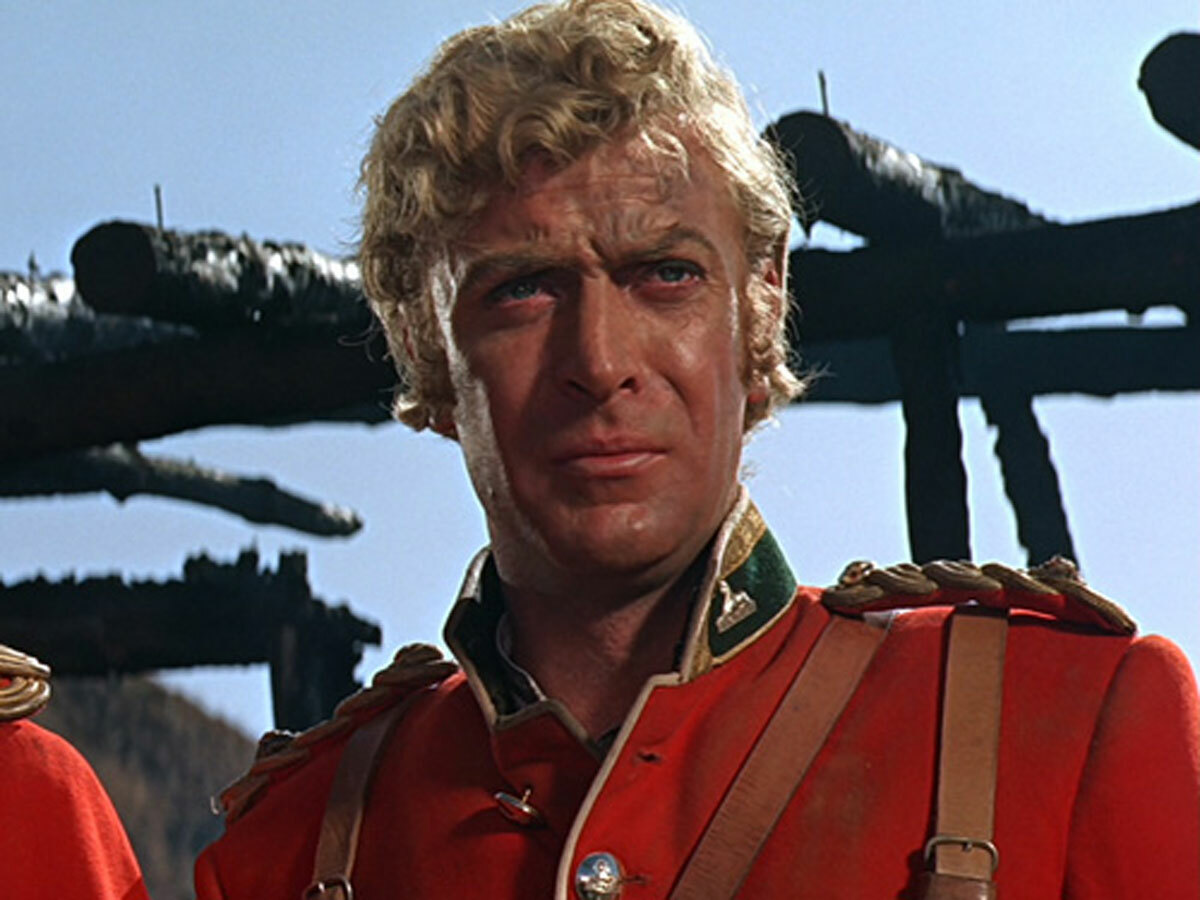
And so all the way back in 1879 for the Anglo-Zulu war. Specifically the Battle of Rorke’s Drift where a heavily outnumbered group are set upon by a huge Zulu contingent. Michael Caine plays against type as a plummy-voiced British officer in an early role, and Welshmen sing.
MASH (1970)

Robert Altman’s Korean War-set black comedy focuses on the doctors who patch up the wounded soldiers, and the ways in which they attempt to relieve the tension of dealing with life-and-death situations on a daily basis. The subsequent TV series may be more famous, but Altman’s original eclipses it in many ways.
The Dirty Dozen (1967)
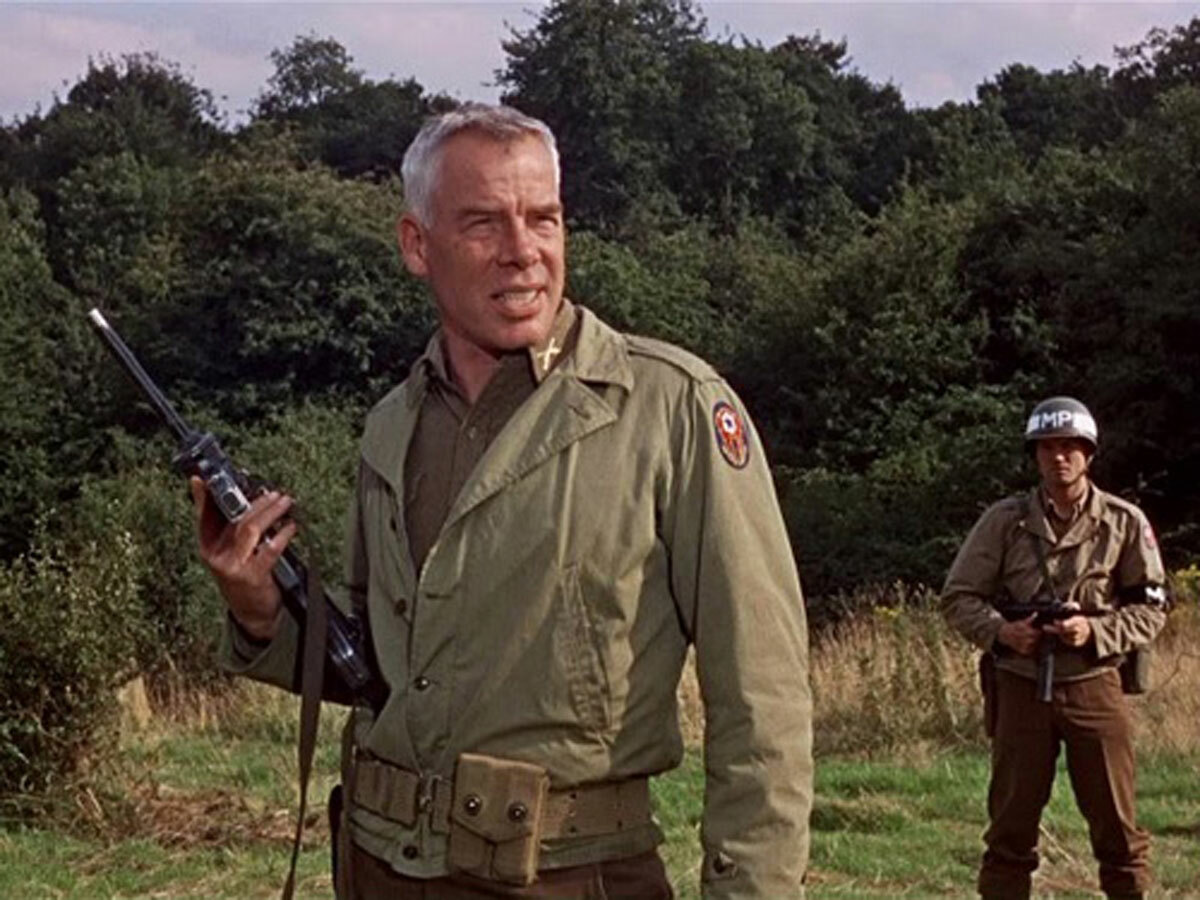
Lee Marvin takes charge of a unit of convicts sent to carry out a suicide mission, in this brutal, macho adventure movie. Made at the height of the Vietnam War, the film skilfully welded the anti-authoritarian attitudes of the time to the conventional men-on-a-mission movie structure.
Laughably implausible, but what it lacks in authenticity it makes up for with raw action.
All Quiet on the Western Front (1930)
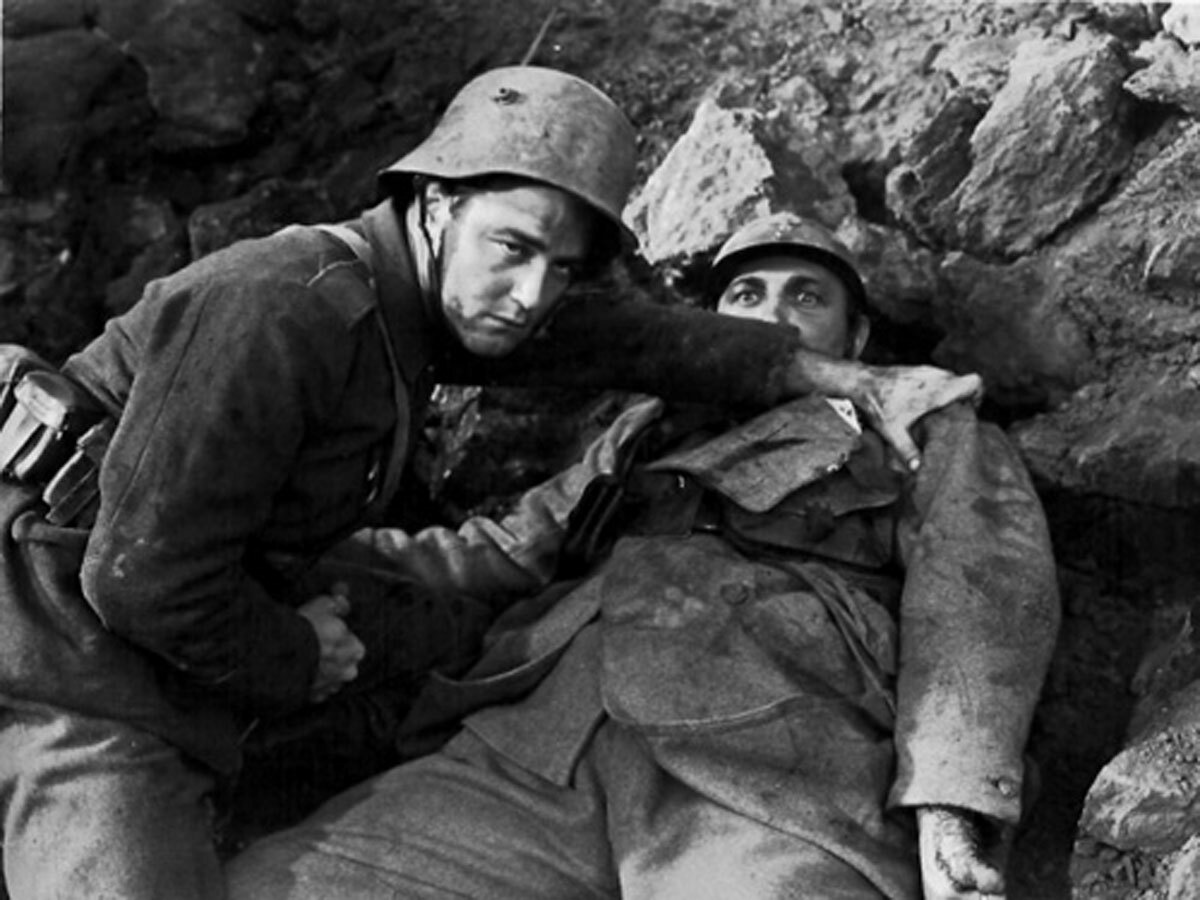
The first film ever to scoop the Best Picture and Best Director Oscars, this adaptation of Erich Maria Remarque’s World War I novel was shot just twelve years after the end of the Great War.
And – somewhat surprisingly – this Hollywood production depicted the horrors of the conflict from the German perspective. Indeed, many German veterans were involved in the production as extras and advisers.
The film’s closing shot is still regarded as one of the most iconic in the history of cinema.
Days of Glory (2006)
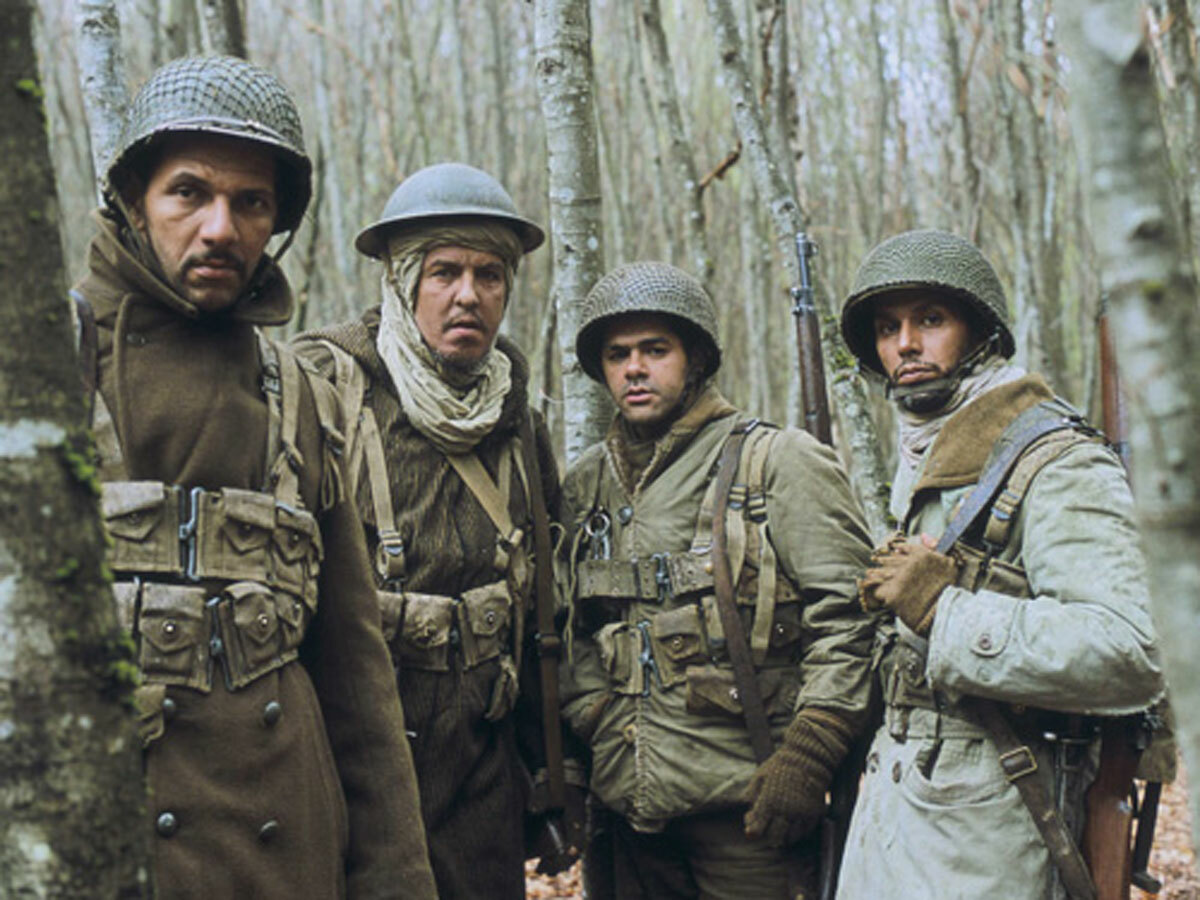
Director Rachid Bouchareb examines the contributions of North African soldiers who fought in the French army during the Second World War – and the shabby treatment these “indigènes” received at the hands of the country they fought for.
Downfall (2004)
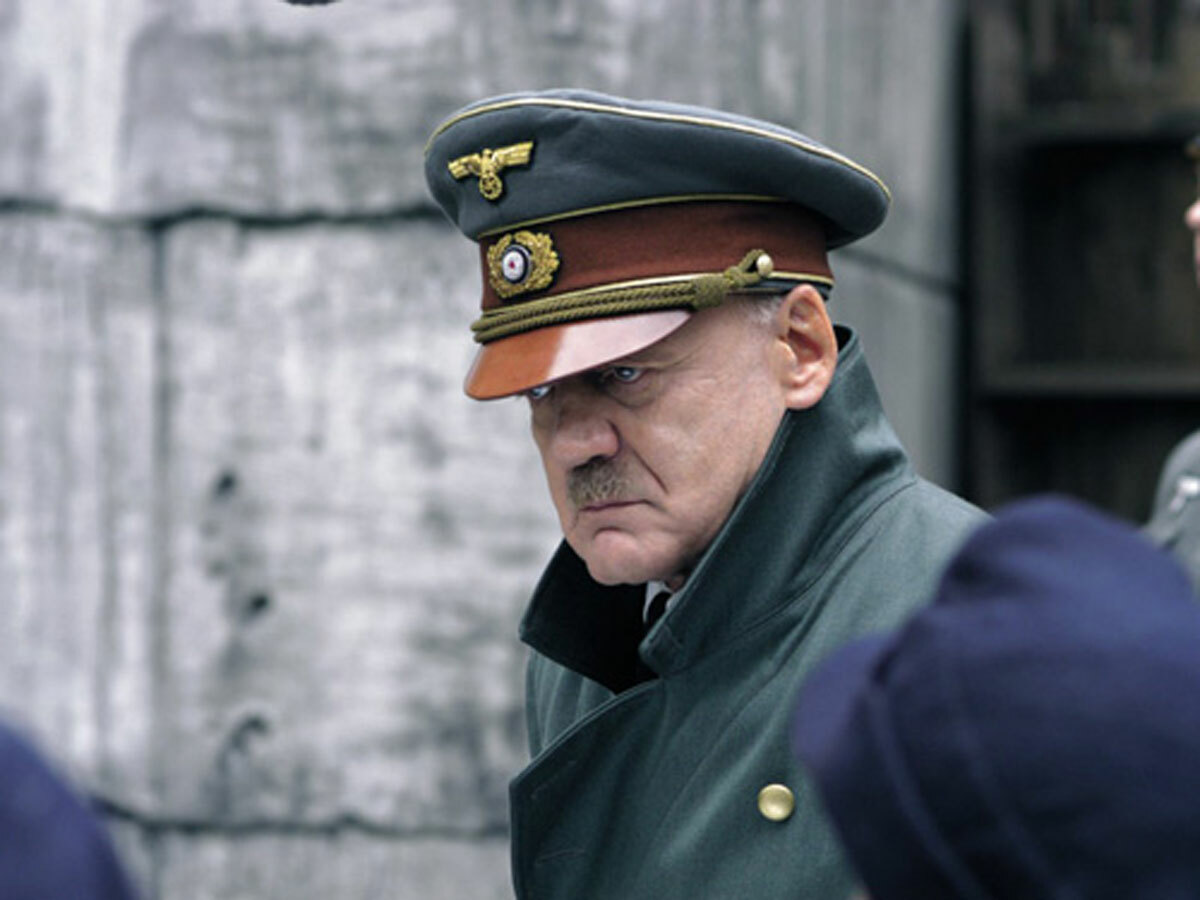
It may be best-known as the film that launched a thousand viral videos, but Oliver Hirschbiegel’s depiction of the last days of Adolf Hitler is serious business.
As Hitler gradually loses his grip on reality in the face of Germany’s defeat, the pressure cooker atmosphere among his most loyal followers in his Berlin bunker mounts.
Star Bruno Ganz navigates the potential minefield of humanising Hitler – while not rendering him a sympathetic character – with consummate skill.
Waterloo (1970)
The vast scale of this film centred around Napoleon’s efforts at the battle of Waterloo in 1815 is what sets it apart. Drawing on 17,000 extras – many borrowed from the Soviet army – it even dwarfs most modern war films with CGI-bolstered casts.
Letters from Iwo Jima (2006)
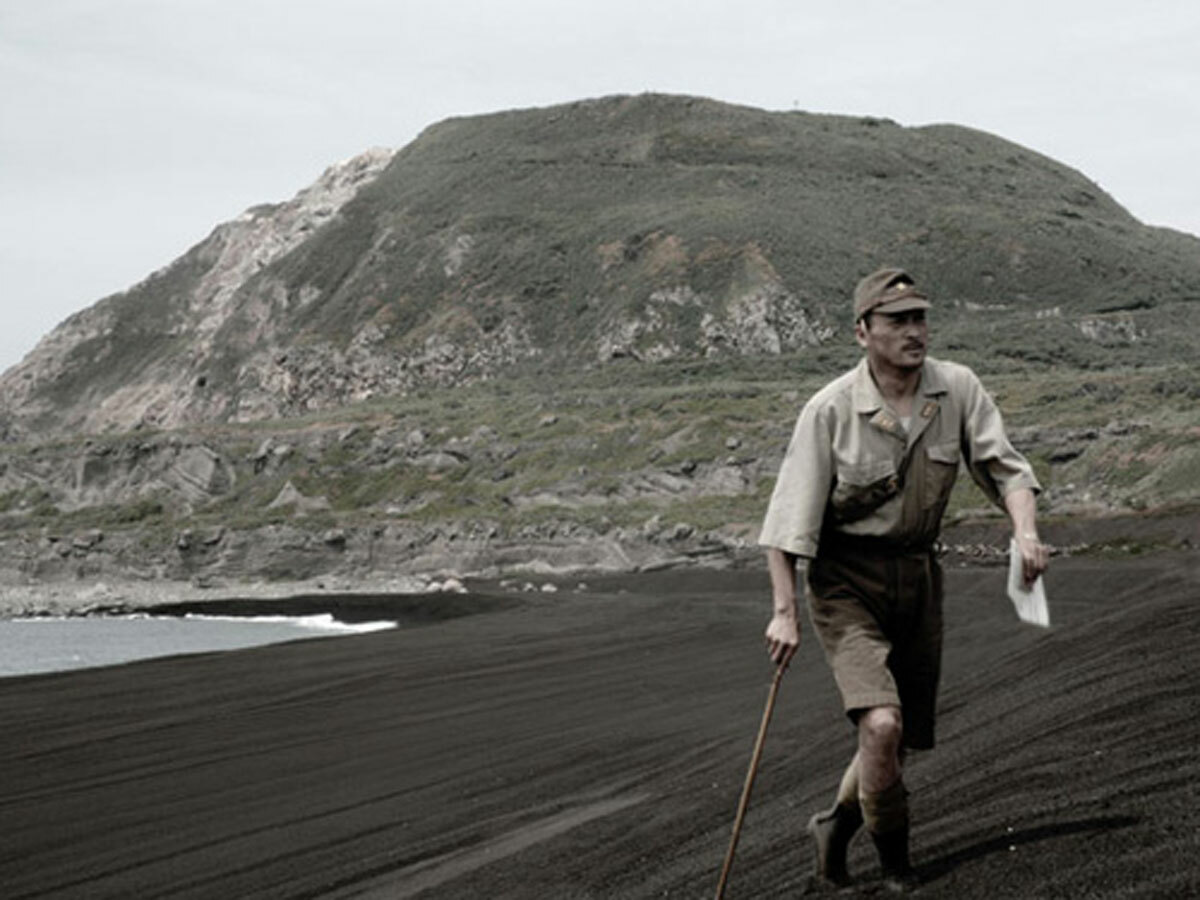
Where Clint Eastwood’s Flags of Our Fathers focused on the oft-told story of American soldiers in the Second World War, this companion piece shifted the focus onto their enemies in the Imperial Japanese Army. Ken Watanabe plays General Kuribayashi, who sticks to his duty of defending the Japanese homeland in the face of seemingly insurmountable odds.
Definitely the superior of the two films in Eastwood’s Second World War diptych.
The Hurt Locker (2008)
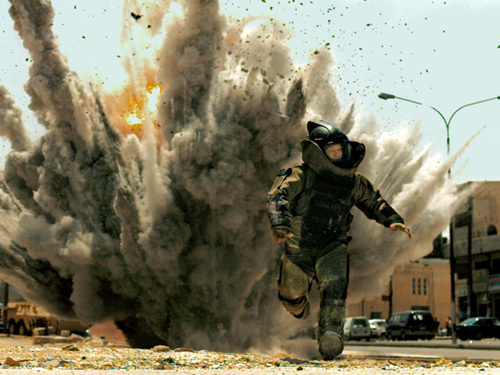
Not filled with guns, this one, but bombs. Kathryn Bigelow’s Iraq war movie – the first film by a female director to win the Best Director Oscar – follows the hyper-tense world of the bomb disposal squad. And you thought Jenga was nerve-wracking…
The Deer Hunter (1978)
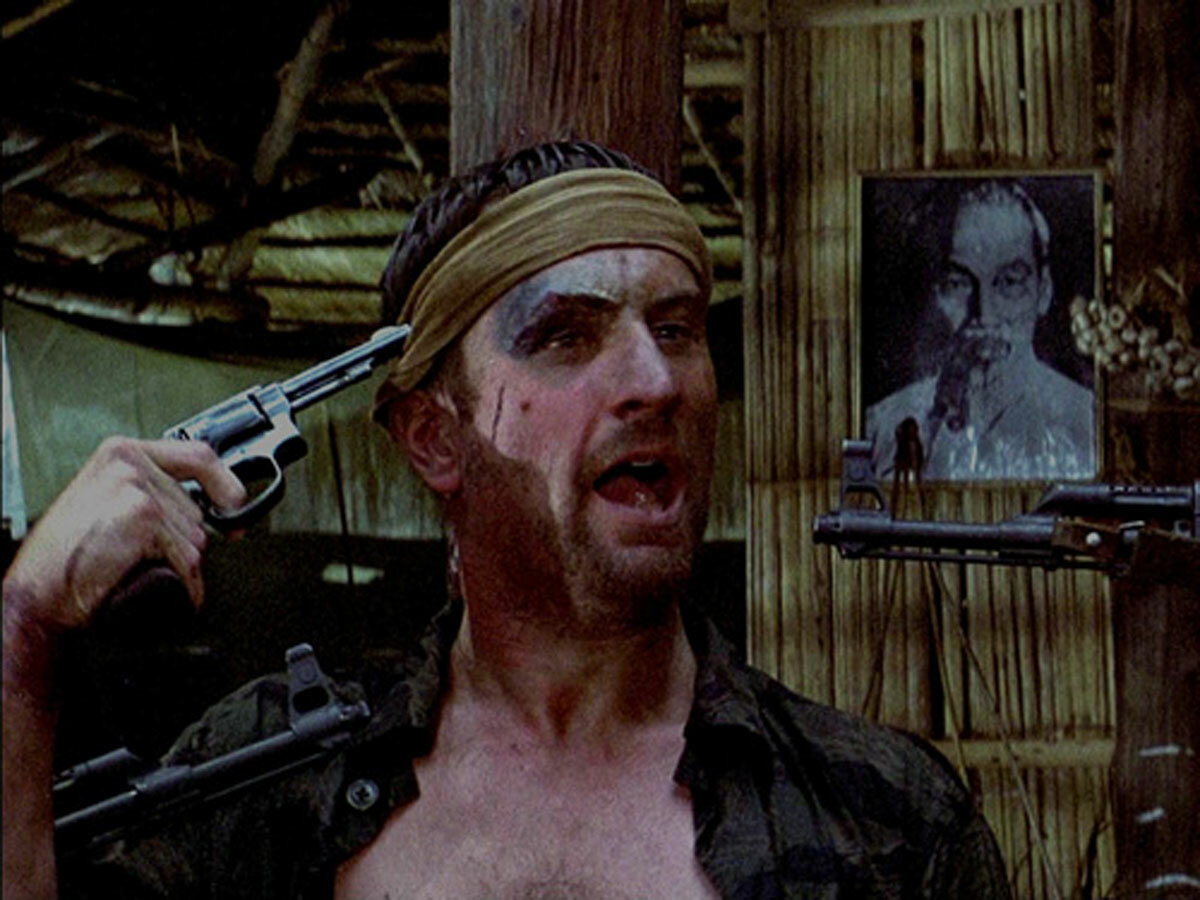
Three friends start off on a hunting trip in Pennsylvania and end up playing Russian roulette at the hands of the Vietcong. Robert de Niro and Christopher Walken put in some stirring performances which lay bare the desperation of their situation – but things get really bleak when they get home.
Das Boot (1981)
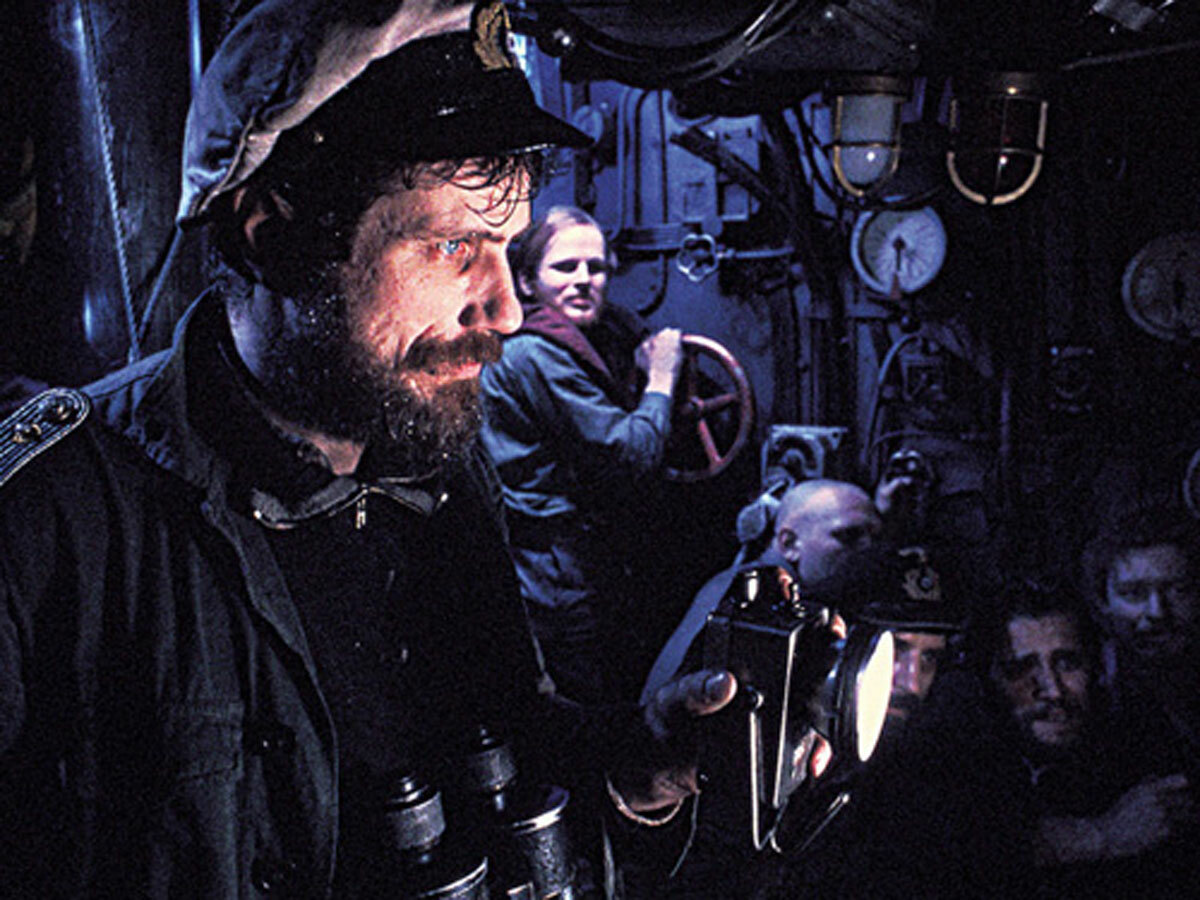
The Second World War as seen from under the waves in German U-boat U-96. The submariners embark upon a battle of attrition with their living conditions and flinch as their creaky metal home almost implodes. Director Wolfgang Petersen intended it to be a journey to the end of the mind – well it’s certainly no great advert for joining the Navy, that’s for sure.
The Lord of the Rings: The Two Towers (2002)
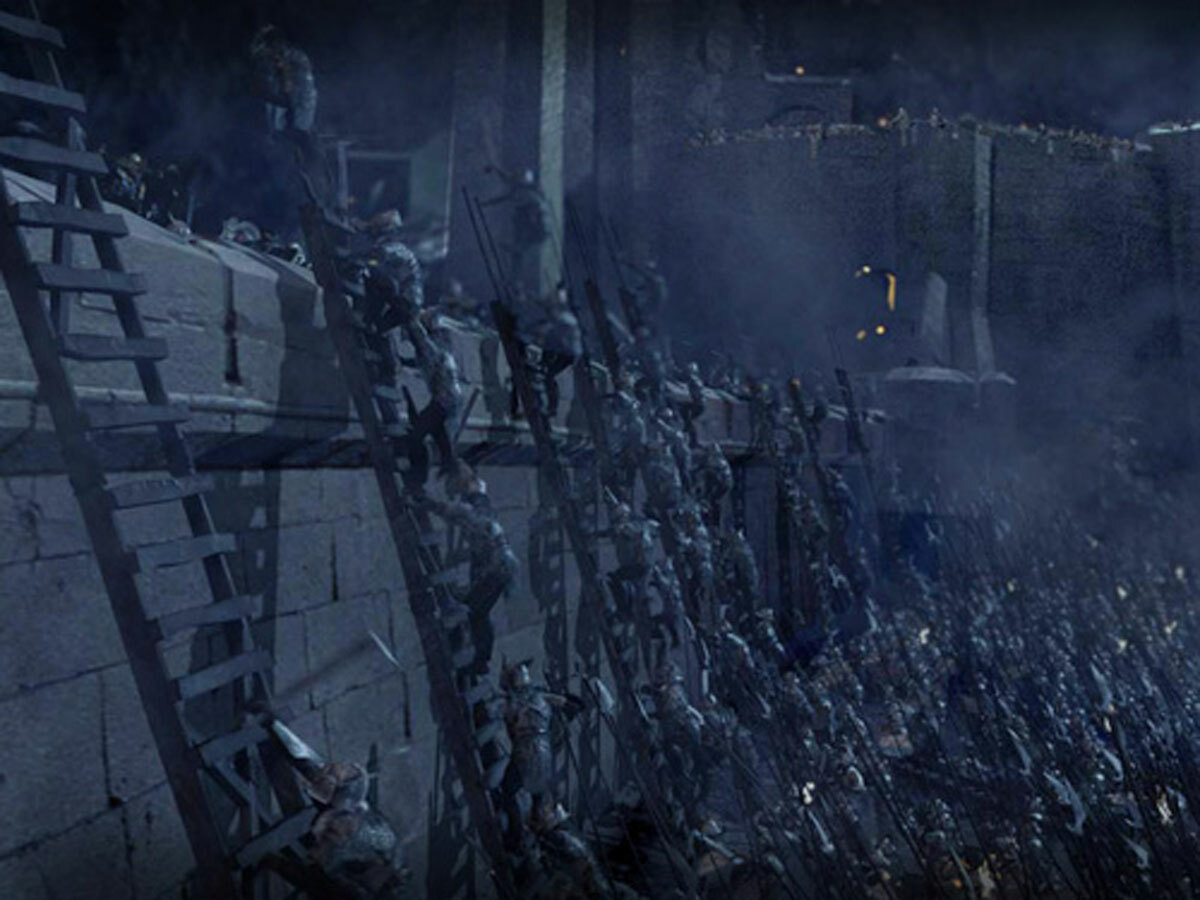
While the first film in Peter Jackson’s Lord of the Rings trilogy focused on the journey of the Fellowship of the Ring, the second is a war movie through and through.
As the forces of Saruman mass against the kingdom of Rohan, we’re treated to the militarisation of Isengard, refugees fleeing the coming conflict and – of course – the climactic conflict at Helm’s Deep, shot by Jackson with a keen eye for the geography of a battle.
The Battle of Algiers (1966)
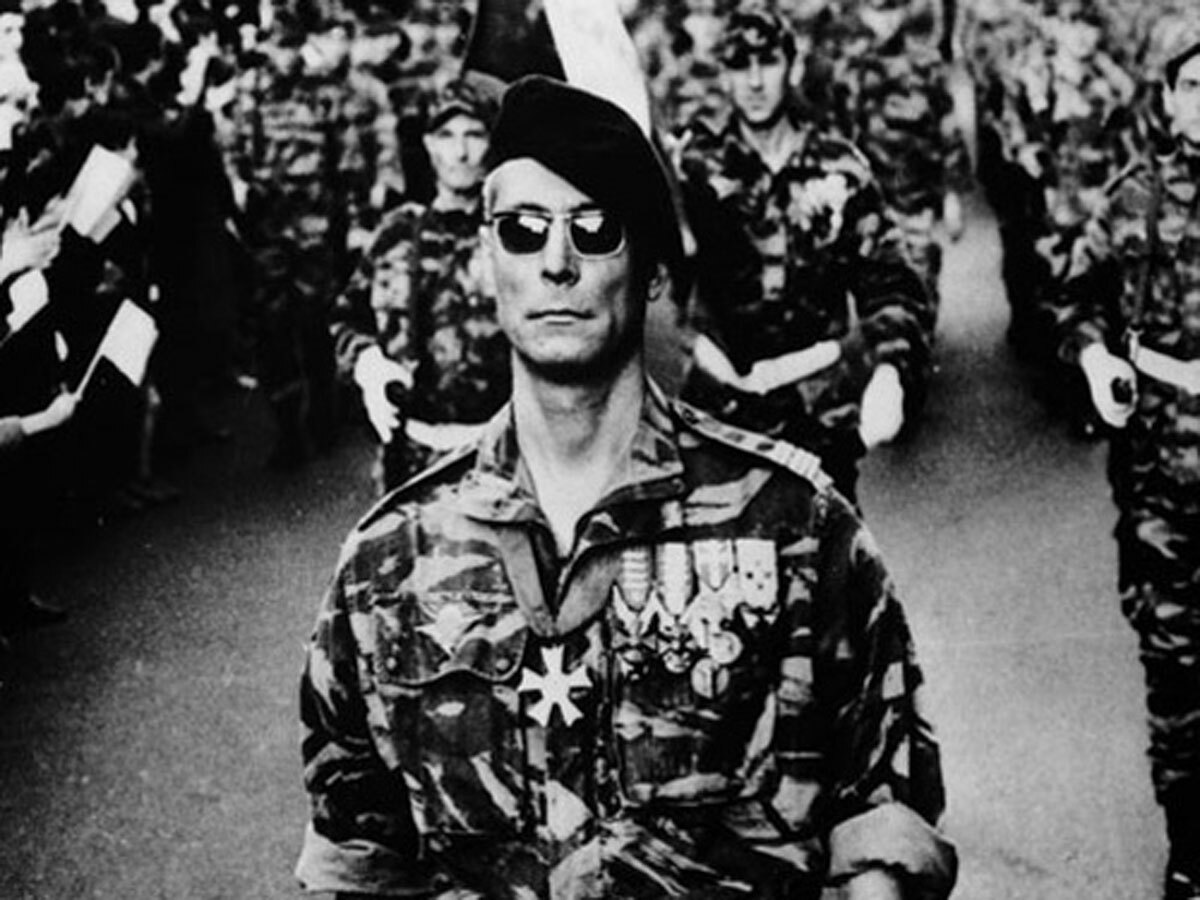
Modern conflicts are characterised not by the sweeping charge into battle, but by the guerrilla war that takes place in the aftermath. The Battle of Algiers, then, is a true modern war film.
It’s a remarkably even-handed depiction of the guerrilla insurrection that took place during the Algerian War of Independence.
Neither the Algerian revolutionaries nor the French counter-insurgency come out of it particularly well, with both engaging in atrocities as the conflict drags on.
Ran (1985)

Akira Kurosawa’s last great epic is – loosely – based on Shakespeare’s King Lear, telling how a feudal warlord’s decision to divide his kingdom among his children leads to ruin. On a grand scale.
Kurosawa’s perfectionism saw him creating an entire castle – and then burning it down – for a key battle scene. No surprise that it was the most expensive Japanese film ever.
